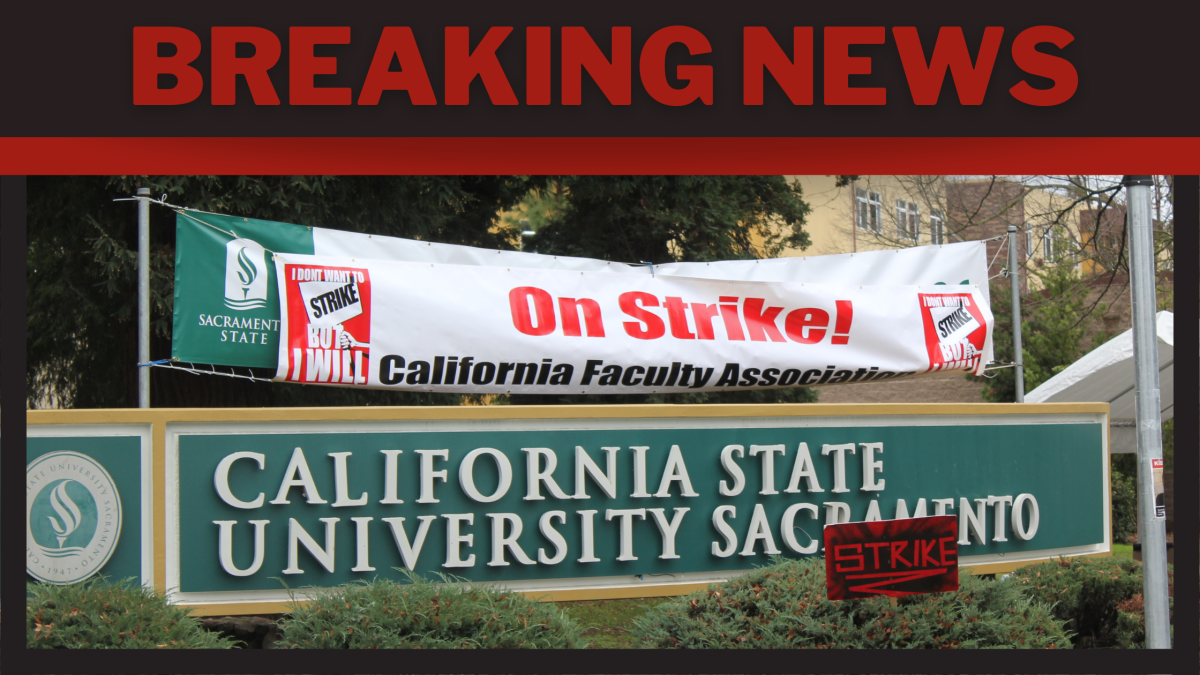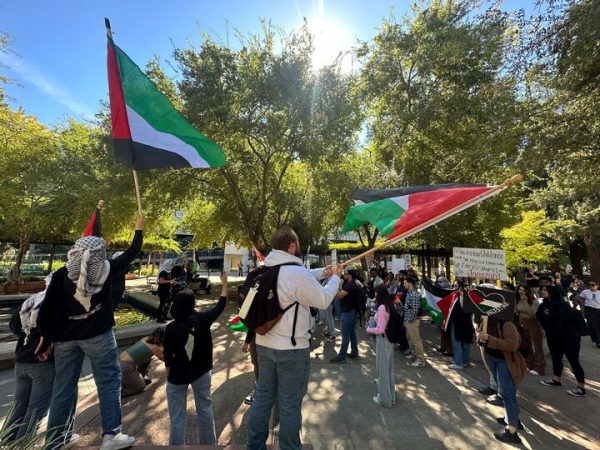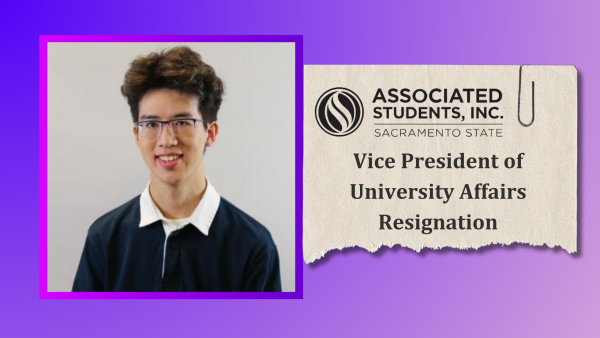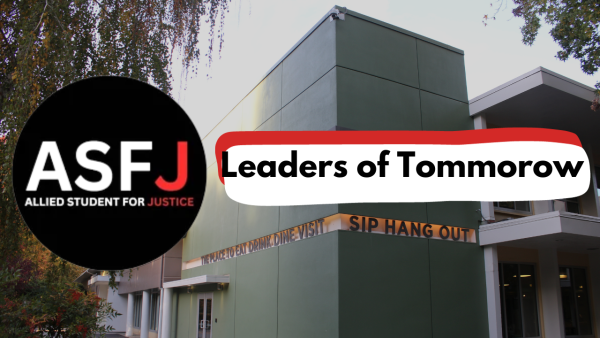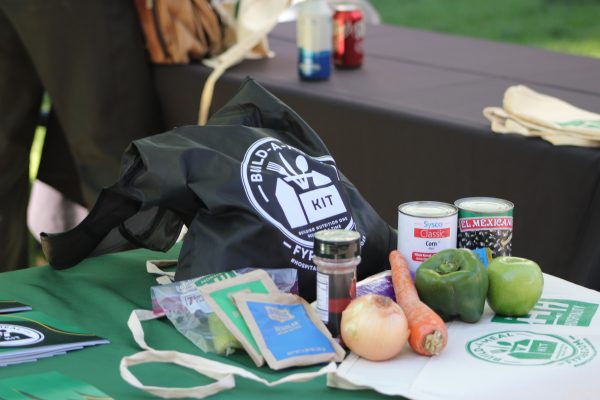NPR co-host Michele Norris discusses race with students
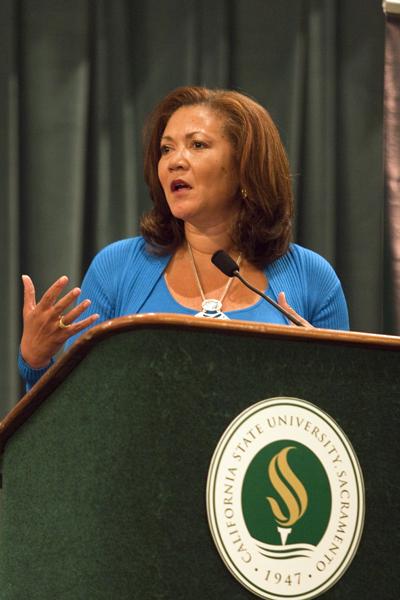
Michele Norris, co-host of NPR’s “All Things Considered,” was at Sacramento State to discuss her new memoir “The Grace of Silence,” which is about her family’s racial roots and race relations in America.
October 26, 2011
Michele Norris brought students and Sacramento community members to Sacramento State’s University Union Ballroom on Thursday.
Norris is known for her work with National Public Radio, where she hosts the radio show “All Things Considered.”
“I am honored when I get the opportunity to have conversations with people face to face,” Norris said.
“Particularly because I spend so much time behind glass, talking to people I can only imagine.”
Norris’s visit was possible through Sac State’s One Book program. Her memoir, “The Grace of Silence: A Memoir” is the featured book for 2011.
The One Book program promotes literacy and engagement within the community through a selected book every year. The program has been around for four years at Sac State, and is primarily funded by Wells Fargo.
“We decided on Michele’s book last October,” said Helen Lee-Keller, faculty coordinator of the One Book program. “All of the books are selected a year in advance. We have to get the authors to fit it into their schedule.”
Norris said she was impressed with the levels Sac State has taken in relation to her book in the art exhibit, a writing contest and a musical being produced.
Norris joined the campus convocation in the University Ballroom, which was free for staff, students and faculty of Sac State. This was after her interaction with freshman students at the beginning of her visit.
The convocation was held to discuss the topic of race, the main theme behind her book.
Joseph Sheley, provost and vice president of Academic Affairs, welcomed the large crowd. He discussed how amazed he was with all of the students present, enough to fill overflow sections of the Union Ballroom, and then he introduced Norris.
Sac State President Alexander Gonzalez was supposed to introduce Norris, but he was recovering from back surgery.
Norris’s goal with this book was to start a discussion about race as told by other people across the country, but ended up finding information about her own families hidden experiences with racism. Norris coined these new revelations about her family as “historic indigestion.”
Even though Norris decided to make a memoir of her own family’s dealings with race, she did not stop trying to get other stories. Norris worked to start a nationwide conversation about race by creating the “Race Cards.”
The Race Card is a postcard on which the crowd was invited to write six words that encompasses an idea about race, and then mail it to a post office box in Washington, D.C., set up by Norris. Other ways these words can be sent to her are through email, Facebook and Twitter.
“I think students should participate in it because it is a chance to express themselves in a simple way on a difficult topic,” Norris said. “It is like cooking a reduction. It is just so sweet because you boil it down to those six words to something so powerful.”
Norris also encouraged students to participate by going to her website, www.michele-norris.com, to look at the six-word essays posted on her wall.
“When you go to the website you are forced to think about life in someone else’s lane,” Norris said. “There is something about saying someone’s truth out loud that makes you absorb it.”
Norris presented to the crowd some examples of the six-word essays she has received from around the world.
“Korean marries Italian in Chinese garden, a costume mistaken for an actor,” Norris said. “Colors run together, why can’t people?”
These Race Cards had been placed on every chair in the Union Ballroom.
“I think its kind of fascinating because she calls it a six word essay and most people would not think six words are an essay,” said Morgan Jones, public relations major. “But there is just so much power behind those six words, which is the important thing.”
In the time between Norris’s convocation with the Sac State community and her evening address, discussions groups were held in different rooms throughout the Union, facilitated by the President’s Committee to Build Campus Unity.
The committee formed these discussions on race and community at Sac State in connection with Norris’ visit.
Kimo Ah Yun, department chair of the committee, said the committee was formed after a convocation about difficult issues was held last spring. The president invited the leaders of the convocation to form a committee to continue the discussion on complex subjects in which to foster a community within Sac State.
In the planning of this forum, committee members did not want to compete with another event. Instead, they wanted to pair with an already existing event, and Norris’ visit was seen as such an opportunity for the committee.
Throughout the different rooms in the Union, these groups discussed the awareness of their own race, familial discussions of race, race within Sac State and steps to go farther to create community.
Some of the group participants described the problem of how some of the clubs, sororities and fraternities attracted certain races, thus creating a problem with the lack of social interaction of the different races outside of class.
Others described how Sac State is a commuter school where some of the students do not have the opportunity to be part of the Sac State community outside of class due to their busy schedule.
Participants described the different forms of racism they have seen and felt in their lives.
Suggestions were given throughout each group to promote a more interactive diverse community at Sac State, which included not only making students accountable with race relations but faculty as well.
These groups involved a variety of races from young to old, representing places from all over the country.
Ah Yun said he hopes to have a photography, essay and film contest to depict the silence or the breaking of silence at Sac State to go along with the other projects connecting to Norris’ visit
Norris began her evening speech at 7 p.m. in the Union Ballroom, which was attended by the Sacramento community at large.
Associate Dean for Undergraduate Studies Sheree Meyer introduced Norris to the Sacramento community.
“The Sacramento State One Book Committee chose the book in part because it calls on readers to challenge the silence surrounding the subject of race,” Meyer said.
Norris proceeded with a discussion of her family history and life in Minneapolis.
Within this discussion of family, she described the racism her family experienced and the reason for their silence, which relates to the title of her memoir.
“They wanted us to rise and to shine and to soar,” Norris said. “And if they wanted us to do all those things, some of the things that they experienced just could not be talked about. They didn’t want to weigh us down.”
After Norris’s lecture, the audience had an opportunity to ask her questions.
These questions included topics on Sacramento’s diversity, interracial children and the appropriate age to discuss race with children.
Norris had a book signing after the question-and-answer outside the Union Ballroom where a long line formed.
The audience was filled with a mixture of fans of her book and admirers of her work with NPR.
“A common theme with NPR is always going a little bit deeper into a story,” said Lindsey Halsey, Sac State alumna. “I think this is just another example of that.”
Norris described a woman who did not find out she was African American until much later in her life through an original birth certificate in which the woman was confused with what race she was in life.
“I told her … ‘You’re human,'” Norris said.
Colin McAteer can be reached at [email protected]










